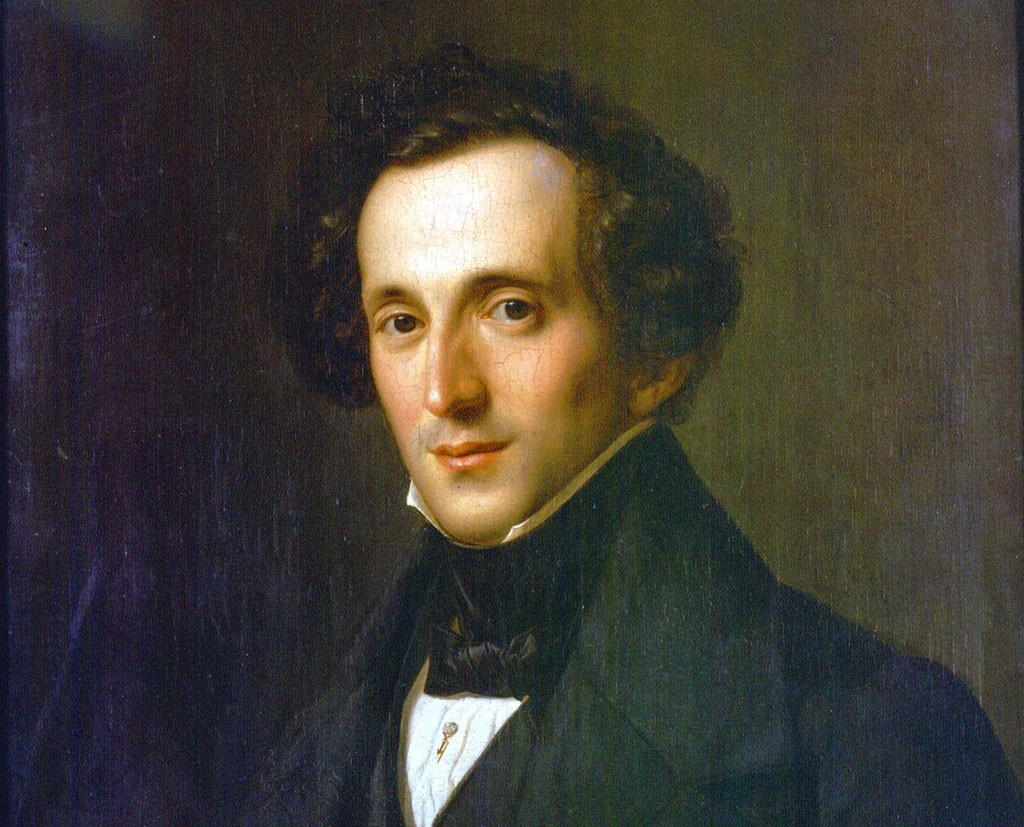Felix Mendelssohn's 'Midsummer Night's Dream Overture' Sounds The Way A Shakespeare Comedy Feels

The title of this week’s column is a big dumb joke, because “a little night music” is the loose translation of Mozart’s Eine Kleine Nachtmusik (which you know, obviously, if you know literally no other classical music). But I’m not writing about Mozart this week; I’m writing about another big M in the catalog, and that’s Felix Mendelssohn who wrote the Midsummer Night’s Dream Overture. And it’s short and it takes place at night. So it’s a little… night… fuck it, I’m sorry, let’s move on.
Thought we were done with moody Germans? You couldn’t be more wrong. Mendelssohn, however, predates Brahms & Co., situating him with some of the early Romantics, like our old friend Hector Berlioz. Mendelssohn was born in Hamburg (which just so happened to be the same independent German state where your old favorite was born) in 1807. Like the other big M (again, this is what I’m calling Mozart this column, just go with it), he was a child prodigy. The Midsummer Night’s Dream Overture, for example, was written in 1826, the year his family got a copy of the Shakespeare comedy. Which means, if you can do math on your phone, Mendelssohn was a teenager when he wrote it. Is this what we’re capable of without the internet? Don’t tell me.
What’s most notable, perhaps, about this overture is that is that it kind of invented the overture as we know it. So say, in your head right now, you try to visualize the type of music that an overture is, you wind up with something that preemptively summarizes a larger thing. We know them mostly from musicals and operas these days. You hear all of the central themes of the music you’re about hear, and then you hear the actual music. Pretty normal thing. But Mendelssohn composed this overture in 1826, as I wrote before, and didn’t add on any of the incidental music until nearly 20 years later at the request of King Friedrich Wilhelm IV of Prussia. So what we have in our overture is really just, well, an overture.
And what an overture it is! This was a new piece for me, sent along by a reader (which you can do too!), as I had originally intended to write about Mendelssohn’s far moodier Violin Concerto (and maybe someday still will). It’s a relatively short piece: my preferred version is by the London Symphony Orchestra from just this year, and I much prefer the slightly slower Allegro di molto at about six minutes in length. It grabs you right from the beginning with four soft and delicate chords on the woodwinds, like the sound of an alarm clock you don’t fully hate just yet.
Then the strings get going — still quiet, but beckoning, building. The first big chord of the piece lands about 1:18 minutes in with a big triumphant melody. Big timpani, big brass, sweeping strings and woodwinds. It’s not unlike Festive Overture, only predating it by about 125 years. It’s wildly playful. It feels like reading a Shakespeare comedy should feel: light and buoyant but dense with theme. I’m thinking now of the melody that comes in at the 3:13 mark, backed by heavy timpani notes, with little runs on the strings. It’s fun! The melodies in this overture are seductive but not sexual. It wants to be liked and enjoyed by the masses. I’m thinking of teenage Mendelssohn composing this because it’s the kind of music he wanted to listen to as a young person, in the way that I assume young people like, uh, Ed Sheeran or whoever.
Because this is an overture, it bounces back and forth between key melodies without any kind of hyper-formal structure you’d see in a symphony movement or a concerto. In turn, the ending kind of comes up on you. The climax of the piece once again features quiet strings moving ever so quickly together, punctuated occasionally with very very loud brass chords. Around the 5:20 mark, you can tell it’s building to something: the creeping pizzicato always feels somewhat foreboding. But rather than coming to some big triumphant conclusion, it settles itself. Not unlike the soft woodwind chords it began on, the Midsummer Night’s Dream Overture puts itself back to sleep.
Fran Hoepfner is a writer from Chicago. You can find a corresponding playlist for all of the pieces discussed in this column here.
